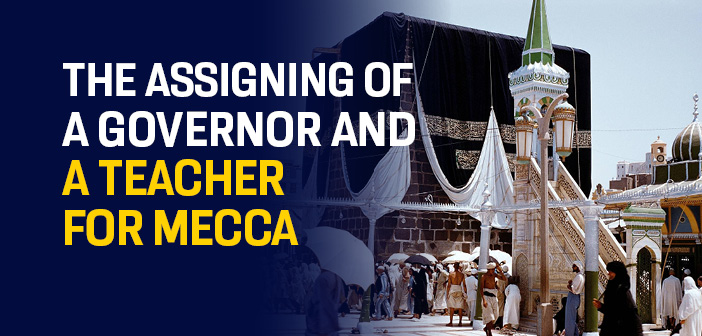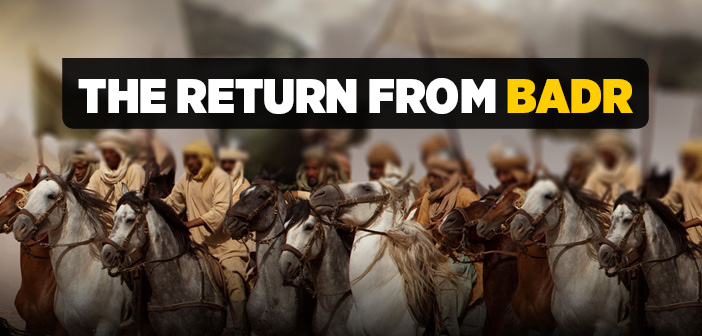Who has been appointed as a teacher to Mecca?
Before leaving Mecca, the Blessed Prophet -upon him blessings and peace- assigned Attab ibn Asid -Allah be well-pleased with him- as governor, to administer the town as well as to regulate affairs related to pilgrimage. Prior to that, the Noble Prophet -upon him blessings and peace- had already left Attab -Allah be well-pleased with him- as deputy in Mecca when setting out to the Battle of Hunayn. (Ibn Hisham, IV, 69, 148) Attab -Allah be well-pleased with him- was around twenty years of age at the time.[1]
Despite there being Companions of greater experience and virtue, it was Attab -Allah be well-pleased with him- who was entrusted with governorship. This shows that posts and duties ought to be given to people of ability, who exert knowledge and virtue, and who are known for their piousness and integrity.
Indeed, the Companions who lent the most paramount service in conveying Islam to future generations were, more often than not, youths like Attab ibn Asid -Allah be well-pleased with him-. For instance, Abdullah ibn Omar and Ibn Abbas -Allah be well-pleased with them-, among those to have narrated the most number of ahadith, were merely thirteen years old at the time of the passing away of the Blessed Prophet -upon him blessings and peace-, while Anas, Ibn Masud and Aisha -Allah be well-pleased with them- were eighteen. Again, most of the Companions present in the Pledge of Aqabah were young; so were a majority of the teachers of the Quran martyred by the Maunah Well. This shows just how vital it is to attend to the education of youth, who will potentially assume important duties that will shape the future of Islam.
The Blessed Prophet -upon him blessings and peace- always wanted for new Muslims to learn the Quran and Sunnah without wasting any time. He would therefore subject those who came to him as Muslims to an intense training next to his Companions, even it if be for a few days. At fajr salat, he would check to see what they had learnt and if their knowledge was still inadequate, he would send them to other Companions and ensure they learnt their instructions properly.
Consequent upon this sensitivity towards the teaching of Islam, the Blessed Prophet -upon him blessings and peace- left Muadh ibn Jabal[2] and Abu Musa al-Ashari[3] -Allah be well-pleased with them- in Mecca to teach the locals the Quran and fiqh, that is the rulings of Islam. This provides categorical evidence for the importance we ought to ascribe to the teaching of Islam.
[1] Hâkim, III, 303/5181.
[2] Waqidi, III, 959.
[3] Ibn Saad, II, 160.
Source: Osman Nuri Topbaş, The Prophet Muhammed Mustafa the Elect II, Erkam Publications





